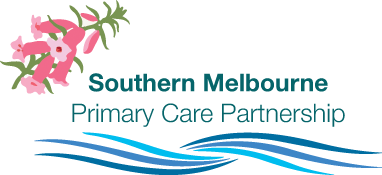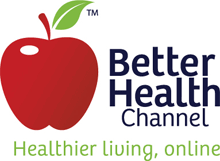CALD
An initiative of the Victorian Government, Health Translations Directory is managed by The Centre for Culture, Ethnicity and Health. The directory provides a wide range of health information for health professionals and community members which is reliable, accurate, and up to date. The information is available in many different languages and links to multilingual resources published by government departments, peak health bodies, hospitals and community health and welfare organisations.
Family Violence
Domestic Violence Resource Centre Victoria (DVRCV)
Domestic Violence Resource Centre Victoria (DVRCV) is a non-profit organisation supported by the Department of Health and Human Services. They provide training, initial telephone support services and useful resources to support workers and community members in responding to family violence.
Domestic Violence Victoria (DV Vic)
Domestic Violence Victoria (DV Vic) is the peak body for women and children’s family violence services in Victoria. The website provides information on policy and regulations in relation to family violence, social media campaigns and other projects for workers to support their work in responding to family violence.
The Lookout
The Lookout is an online project developed by the Domestic Violence Resource Centre Victoria (DVRCV) and Domestic Violence Victoria (DV Vic). The website is a one-stop shop for community members, academics and researchers, journalists and media workers, and other health practitioners who are seeking support to provide better responses to women and children experiencing, or at risk of, family violence.
Health Literacy
Australian Commission on Safety and Quality in Health Care
The National Statement on Health Literacy was endorsed by the State and Territory Health Ministers and recognised the importance of coordinated and collaborative approach in addressing health literacy in Australia. The resources can be used by individuals and organisations to support their work on health literacy. This site contains links to the National statement on Health Literacy and a range of other useful resources.
Enliven Organisational Health Literacy Self-assessment Resource
Enliven Primary Care Partnership is a voluntary alliance of local governments, community health services and non-profit organisations. The Organisational Health Literacy Self-assessment Resource was developed to provide health and social service organisations with a self-assessment tool that can be used to guide and inform their development as health literate organisations.
Online Health Literacy Course
Developed by Victorian Primary Care Partnerships, this free online health literacy course is a series of modules designed to build the capacity of health professionals to understand and incorporate health literacy into their systems and practice. The course is also relevant to those working in local government, community and social service sectors.
Indigenous Australians
2016 Census Community Profiles: Aboriginal and Torres Strait Islander Peoples (Indigenous) Profile - Australian Bureau of Statistics
Community Profiles provide a comprehensive statistical picture of an area in Excel format, providing characteristics relating to people, families and dwellings. They cover most topics on the Census form. The links below relate specifically to Aboriginal and Torres Strait Islander Peoples in local government areas covered by our catchment.
After clicking the links below, download the spreadsheet from the link in the middle of the screen and click across the different tabs to access the full range of information.
Australian Indigenous HealthInfoNet
A wide range of resources and information can be accessed via the Australian Indigenous HealthInfoNet website. Supported by the Edith Cowan University, the site offers links to health promotion resources, health facts, publications, programs and projects, courses and training, funding opportunities and more. Opportunities for information sharing are also available through the site's ‘yarning places’.
Aboriginal Early Childhood Community Profiles
A series of Aboriginal Early Childhood Community Profiles draw on data on outcomes for children compiled through the Victorian Child and Adolescent Monitoring System (VCAMS). These profiles provide local level information on the health, learning, development, safety and wellbeing of Aboriginal children aged 0 to 8 years. The Aboriginal Early Childhood Community Profile Summary Sheets contain a summary of the indicator data contained in these community profiles.
Closing the gap in Aboriginal health outcomes evaluation: Final Report (January 2014)
The Victorian Closing the Gap in Health Outcomes (CtHG) Initiative is one component of Victoria’s contribution to the national efforts to close the gap in Indigenous disadvantage. CtHG built on existing frameworks within Victoria to address Indigenous disadvantage, and was designed to strategically align with both national and state targets to reduce the disparity in health outcomes between Aboriginal and non-Aboriginal Victorians. CtHG was established in 2009/10 and concluded in June 2013. The findings are discussed in this final report.
Maggolee
Developed by Reconciliation Victoria, with funding from Victorian Government, as a resource for local councils to work more closely with Aboriginal communities, the site includes information on policy and programs, protocols and cultural awareness, key contacts, relevant local data, news and events.
Information about the 79 Victorian local government areas can be found including local Traditional owners and Aboriginal organisations, key contacts, demographic data, and services. There is also information about actions councils can take across key function areas to build closer relationships with Aboriginal and Torres Strait Islander communities and to progress reconciliation.
Victorian Department of Health Aboriginal Health Publications
A range of publications are available on the Victorian Department of Health website. Programs covered include Korin Korin Balit-Djak, Koolin Balit, Dumba-ngangin and more.
Primary Care Partnerships
Primary Care Partnerships - Department of Health and Human Services
As a Department of Health and Human Services (DHHS) strategy, more information about Primary Care Partnerships can be found on the DHHS website including strategic plans, reporting requirements and achievements.
Victorian Primary Care Partnerships
The Victorian Primary Care Partnerships (Vic PCP) is a voluntary alliance of the 28 primary care partnerships in Victoria. Vic PCP ixists to support and promote the primary care partnership platform and the borader use of partnerships to achieve improvemetns in population health and wellbeing. The Vic PCP website contains links to all Victorian PCP websites as well as useful information for those working in the areas of Client and Community Empowerment, Prevention and Early Intervention & Integrated Care. The site has recently be redeveloped and information is still being added (Jan 2016).
Population Health
Australia's Health Tracker by Area
This interactive website provides the latest Australian data on chronic diseases, conditions and their risk factors. Data are presented in maps and reported on by Population Health Area, Local Government Area, Primary Health Network, and at the State and Territory level. The data is regularly updated and progress towards targets for a healthier Australia by 2025 is monitored.
Victorian Health Monitor
The Victorian Health Monitor report presents measured baseline physical and biomedical information for Victoria on chronic disease risk factors. By measuring height, weight, waist circumference, blood lipids, blood pressure and fasting blood glucose levels, the Victorian Health Monitor provides, with a high degree of accuracy, an assessment of the prevalence of obesity, hypertension, diabetes, heart disease and the metabolic syndrome in the adult population. Companion reports relating to Food and Nutrition and Kidney Disease are also available from the website.
Survive the Heat
Better Health Channel
This Better Health Channel article contains important information to assist individuals to look after their health and wellbeing during periods of hot weather. Links are also provided to videos, the BOM forcast line and the Better Health Channel app.
Department of Health and Human Services
A range of resouces have been developed by the Department of Health and Human Services to support organisations and individuals during heatwave conditions. Resources are available in community languages and a subscription service is available for heat health alerts.
Further resources
More resource links can be found on our Consumer, Planning data, Prevention, Act-Belong-Commit, and Service Coordination and Integrated Care Resource pages.



